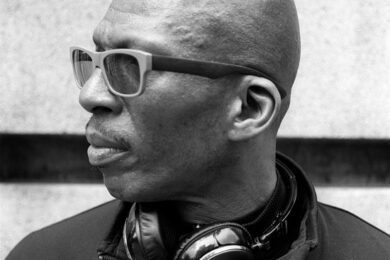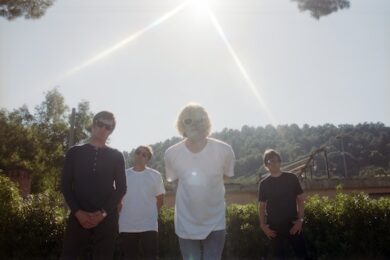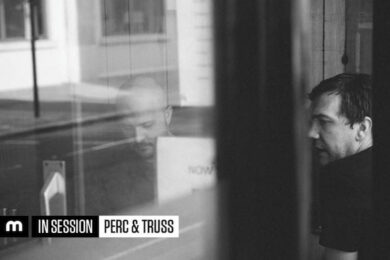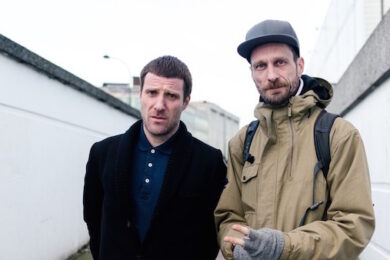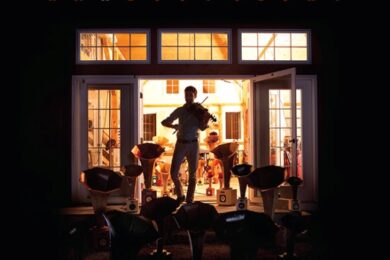This feature was originally published by our friends at the excellent Stool Pigeon
How many homoerotic Orchestral Manoeuvres In The Dark-influenced classical pop concept-not-concept albums concerning a farmer called Lewis are you likely to hear this year? If it’s just one, make sure it’s Heartland, the new record from dry, diffident Toronto native Owen Pallett, formerly known as Final Fantasy.
The trouble with writing such a record, says a groggy Pallett down the line from across the Atlantic, is that people have already tried to read too much into it. His devoted internet-dwelling fans are battering keyboards into submission as they try to work out exactly who Lewis is. Is he Owen Pallett? Pallett’s boyfriend? A humble rancher from rural Canada, keeping it on the down-low behind a hay rick? Is this even a bloody concept album?
Pallett sighs. "In the last three months, it’s all I’ve been talking about and it’s really fucking exhausting," he says. "I actually had meetings with friends where I asked them whether I should talk about this concept in the press release or not. Some said, ‘No, don’t do it,’ but one of my best friends said, ‘Your concept is so beautiful, you can’t ignore it.’ So I decided to meet them in the middle and explain it halfway. Ooof, what a mess."
Heartland certainly isn’t a mess. On a musical level, Pallett’s work on strings for the likes of Last Shadow Puppets and Arcade Fire seems to have made his arrangements here all the more precise. And not only that, this is a record that defies the boundaries of contemporary classical, Canadian indie pop, or whatever you might like to call it. Not that Pallett was expecting the world to welcome it with open arms. "When I was making it, I was thinking, ‘Are people really going to want to listen to an orchestra for 47 minutes?’"
Is that why he has said it was created around the principles of electronic music? Are those principles what gives Heartland its immediacy? "No. I don’t know what it is that sustains the ear over 47 minutes. The electronic stuff is really fascinating, because it’s a classical record but I wasn’t listening to Sibelius or something. Unlike He Poos Clouds, which was rooted in the classical tradition, this record was most inspired by Orchestral Manoeuvres In The Dark."
One of the highlights of Pallett’s 2006 tour around the release of He Poos Clouds was his encore of tracks from OMD’s imperious 1983 album Dazzle Ships. Pallett used his signature live technique of looping bowed and plucked violin to render charming versions of OMD tracks like ‘ABC Auto-Industry’. This led to contact from the band’s management in search of arrangements for a concert with the Royal Liverpool Philharmonic Orchestra.
Pallett takes up the story: "I realised the arrangements were somewhat out of the boundaries of my ability. And I felt so attached to the original material and the synthesisers that were used that I felt all I was doing was making it worse."
But though the project didn’t quite take off, the lessons learned had a huge impact on what was to become Heartland. "I was working so hard to make the strings sound like a four-pole filter sweep, which is what is the intro of [OMD track] ‘Souvenir’ is made from. That inspired me to take what I was trying to do for an orchestra and apply it to my own songs. I have a real soft spot for those records from the analogue era of synth pop."
Perhaps this offers us a thematic clue, too. Before OMD plunged into the fondue set and wrote ‘If You Leave’ for the Pretty In Pink soundtrack, their records dealt with concepts: oil refineries, French martyr Joan of Arc, and of course, in ‘Enola Gay’, the plane that dropped the atomic bomb on Hiroshima. In the same way, Lewis seems to be the device to lead to whatever Pallett’s wider themes might be.
So Owen, who is Lewis? "I used a lot of different people for the basis for him, including my brother. Not that I have sex feelings for my brother!"
And what does he farm? "It’s not specified on the album what he farms, though he does talk about cow shit, so I guess that makes him a dairy farmer. It’s unclear too as to whether he’s a farmhand or whether he actually owns his farm. There’s certainly a lot of ambiguity about him. I tried to get more specific about the physicality of him. I wanted to objectify him almost, in a homoerotic way, but it’s not just a sexual fascination; there’s something more mysterious about having this character that is politically, socially and physically alien to you."


